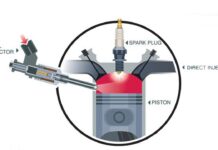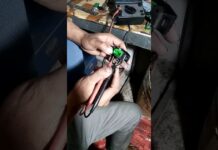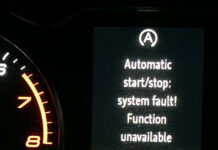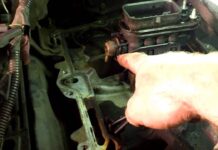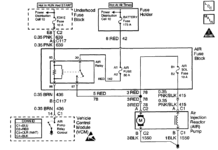What is car electric insurance? What is insurance? What types are available? Why is it important to use auto-electronic fuses? What is insurance’s duty? How do you know when the fuse has blown?
What is Insurance?
There are many circuits in your vehicle that power everything, from the radio to engine computers. A blown fuse could be the reason why one of these circuits suddenly stops working. The fuse protects against short circuits or other issues that could cause mishaps due to overcurrent.
When there is a short circuit in the electrical system, or any other problem, a fuse will blow. This indicates that your vehicle’s insurance is doing its job to protect it from damage to wiring or other equipment. A blown fuse means you have an electrical problem or wiring issue that requires immediate attention.
What insurance types are there?
Different types of fuse are used for different purposes. One of the oldest fuse types is glass fuses. They are available in sizes 20 mm, 30 and 32 mm. 20 mm fuses 5 mm in diameter, 30 and 32 mm fuses 6.4 mm (1/4″) in diameter. Glass fuses are preferred for low current applications.
Blade type fuses are however common in modern vehicles. These fuse blocks are composed of two metal blades. To protect the small wire running between the blades, the top of each blade is covered with plastic. This little wire is what causes your vehicle to blow up or become illegible when it has an electrical problem. Some fuse wires can be S-shaped or arc-shaped. Others run straight from blade to blade. The amperage rating of these fuses will determine the color of the fuse. A blown fuse should be replaced with one of the same colour. The materials used for connecting the blades to their bodies are extremely durable. Because they are strong enough to withstand current capacities, metals like silver, copper and aluminum are common.
Standard blade fuse models are known as APR, ATC, or ATO, while mini versions are known as APM or ATM fuses. The mini version is the most commonly used model in cars. Micro-blade fuses, which are more commonly used in new generation advanced vehicles, are known as APS or ATT fuses, and maxi fuses are known as APX fuses. APX fuse models can be used for power or higher current applications.
Why is insurance important?
You might not realize how important automotive electrical fuses can be. Overloaded electrical currents can cause wires overheat and melt without fuses. Other components of the electrical system may also be damaged. Overcharged cables can cause fires and ignite which can inflict serious injury to vehicle occupants. Fuses can prevent these powerful currents from damaging cables or components.
They can still protect your vehicle, provided they have the correct capacity. The wire size and amperage requirements of the fuse will determine its capacity. When replacing or adding electrical components to your vehicle, it is important that you note the amperage rating. Your appliances and automotive fuse must have a compatible capacity to prevent unexpected short circuits or electrical problems.
What is the Insurance Duty?
When your electrical system is in good order, it will send steady electricity to power your vehicle’s accessories and parts. Electrical spikes can be caused by wiring problems or other electrical issues that could damage your vehicle. The purpose of fuses is to prevent them from blowing.
Your fuse will automatically stop any current that exceeds the rating of the fuse. The expiry date of your fuse might vary. It all depends on the material of your fuse and how high your electrical current is. It’s best to get your vehicle checked if your insurance fails. Your car can be repaired easily by replacing the blown fuse. An underlying electrical problem could have led to blown fuses repeatedly or other electrical damage.
How do you tell if your insurance has gone bust?
A blown fuse occurs when an electrical device stops functioning. Other complications could be the cause, so it is important to check your vehicle for a blown bulb.
There may be two fuse boxes for certain vehicles. A heavy duty fuse box is located under the hood. It protects the headlights and AC wiring. To protect the cables, a smaller fuse box is located inside the vehicle.
This diagram shows you where each fuse is located and which accessories it protects. Some insurance slots could be empty. All fuses listed in the diagram should be found in the fuse block. Contact your auto service technician if the fuse are not found. These fuses could have been destroyed by repairs or other changes.
Relays are not the large black or gray squares that are attached to the fusebox. These protect components from voltage drops between power supply and electrical part. They can become damaged over time and should always be replaced by your mechanic.
A blown fuse can be easily identified visually. If the fuse’s internal element fails, you can identify if it has blown. But, it is possible that more than one fuse will blow. Multiple fuses can blow simultaneously, so make sure you check all fuses in your box. To ensure that you get the correct replacement fuse, it is important to pay attention also to the fuse’s maximum capacity.
To check if your fuse is blown, you can also use a multimeter. To ensure that your fuse is not blown, you should double-check. The fuse might appear intact in some cases even though it is not functioning properly. Always remove the fuse from its box before testing it.
Modern vehicles have a small, plastic fuse holder that allows you to remove the fuses from their slots. Don’t try to remove fuses using your fingers or pliers. This task is much simpler when you have a fuse holder.
Why does insurance throw?
An electrical current too strong to handle can often cause fuse blowing. An overcurrent can be caused by:
Incorrect Wiring
Your wiring must be in good shape to get electricity where it is needed most efficiently. But cables can fail or become worn over time. There are some vehicles that have defective wiring, which can lead to fuses blowing. A mechanic should inspect your vehicle’s wiring if it seems to be faulty.
Defective Parts
Blown fuse can be caused by defective windshield motors, switches, or other electrical parts. The fuse can be blown by defective components or sudden electrical current surges. To have your fuses checked by a mechanic, if you believe that your fuse is being blown by defective parts,
Are Insurance Policies Broken?
Automobile fuses can go out of control without blowing. Although they can rust from moisture, this is very rare. You should inspect the condition of your car’s fuse box regularly.
Your vehicle’s normal operation depends on its electrical system. To protect your vehicle against electrical hazards, make sure that your fuses are in good working order. You should be ready for the fuse to blow again if it is necessary to replace a blown one. A blown fuse can often be a sign of a problem in your vehicle’s wiring and electrical components.


